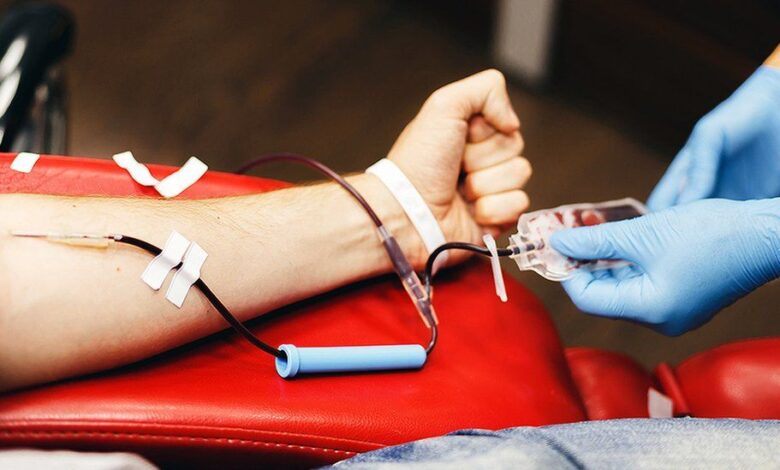How To Donate Blood: The Comprehensive Guide

The Red Cross is a charitable organization that provides many life-saving services. As the article explains, donating blood is one of their main activities, and it can be a very rewarding experience for anyone who does it.
How to Donate Blood
Donating blood is a great way to help others in need, and it’s also pretty easy to do! The process only takes a few minutes, and you can make a big difference in someone’s life. Here’s a step-by-step guide on how to donate blood:
1. Find a blood donation center or drive near you. You can use the Red Cross website to find a location near you.
2. Make an appointment or walk in. Once you find a center, you can either make an appointment or walk in. Appointments are usually preferred, but walk-ins are usually accepted as well.
3. Fill out some paperwork. When you arrive at the center, you’ll need to fill out some paperwork. This will include questions about your medical history and contact information.
4. Get a mini physical. A staff member will check your pulse, blood pressure, and hemoglobin level with a finger prick test. This is to make sure that it’s safe for you to donate blood. 5. Donate blood! The actual process of donating blood only takes about 10 minutes. You’ll be seated
Tips for a Successful Donation
Donating blood is a selfless act that can save lives. If you’re thinking of donating, here are a few tips to make sure your donation goes smoothly: -Schedule an appointment in advance. This will help ensure that the donation center is prepared for your arrival and that they have the proper equipment on hand. -Eat a nutritious meal beforehand. This will help keep your energy levels up during the donation process. -Drink plenty of fluids. Staying hydrated will help your body recover from the donation quickly. -Relax and stay positive. The staff at the donation center will take good care of you, and you’re doing a great thing by giving blood!
What Happens After the Donation?
After you have donated blood, you will be given a post-donation care kit that includes a snack and drink, a bandage, and instructions for taking care of your arm. You will also be asked to wait in the recovery area for about 10-15 minutes so that staff can monitor your condition. Once you have been cleared to leave, you are free to go!
What Disqualifies You from Donating?
There are a few things that may disqualify you from donating blood. These include: -An active infection or recent history of infection, such as hepatitis B or C, HIV/AIDS, syphilis, malaria, or tuberculosis -Recent exposure to radiation or chemicals -Cancer (with some exceptions)
-Heart disease -Lung disease -Mental illness -Kidney disease -Autoimmune disorders Additionally, there are some lifestyle choices that may make you ineligible to donate, at least temporarily. These include: – recent tattoos or piercings (wait 4 months) – use of street drugs – pregnancy (wait 6 weeks after delivery) – recent surgery (wait 4 weeks)
Medical Conditions and Issues That Prevent You from Donating Blood
There are a number of medical conditions and issues that may prevent you from being able to donate blood. These include: -Anemia:
This is a condition in which there are not enough healthy red blood cells in the body. Red blood cells carry oxygen around the body, so someone with anemia may feel tired and weak. -Cancer: While cancer itself does not necessarily preclude someone from donating blood, certain treatments (such as chemotherapy) can.
This is because these treatments can weaken the immune system and make it more difficult for the body to produce new blood cells. -Heart disease: Some heart conditions can make it unsafe for someone to donate blood.
This is because the extra effort required to pump blood through the body can put strain on the heart. -People with HIV or AIDS cannot donate blood, as there is a risk of transmitting the virus to others via the blood transfusion. -Other infectious diseases: There are a number of other infectious diseases that can also prevent someone from donating blood, such as hepatitis B and C, syphilis, and West Nile Virus.
Myths about Blood Donation
There are many myths about blood donation that can deter people from giving blood. However, it’s important to remember that these myths are just that – myths. There is no truth to them, and you can feel safe and confident when you donate blood. Myth
1: Giving blood is painful This is perhaps the most common myth about blood donation. Many people believe that the needle used to draw blood is large and sharp, and that the process is therefore quite painful. However, the reality is that the needle used is actually quite small, and the procedure is relatively quick and painless. Most people report feeling only a slight prick when the needle is inserted. Myth
2: Giving blood will make you weak Another common myth is that giving blood will make you weak or dizzy. This simply isn’t true. You may feel a little lightheaded after giving blood, but this is due to the fact that your body is adjusting to the loss of fluid. It’s nothing to worry about and usually goes away within a few minutes. Drink plenty of fluids afterwards and lie down if you feel faint.
If you Are Looking For blood bank in Karachi You Must Need To Contact Healthsolution




